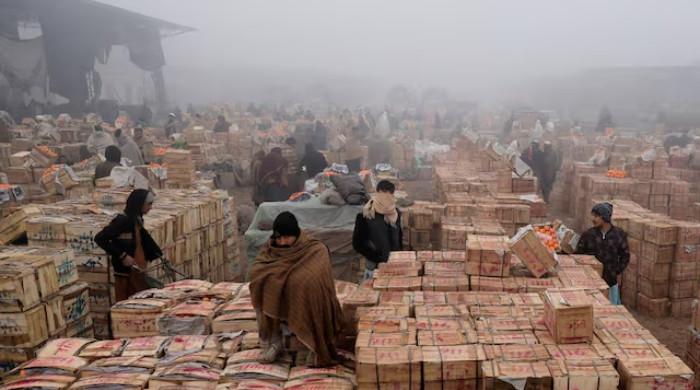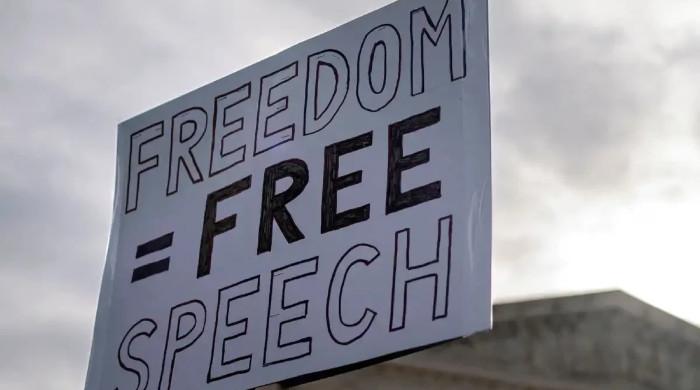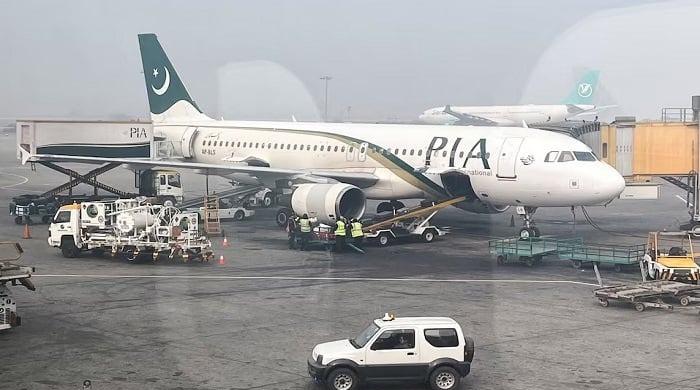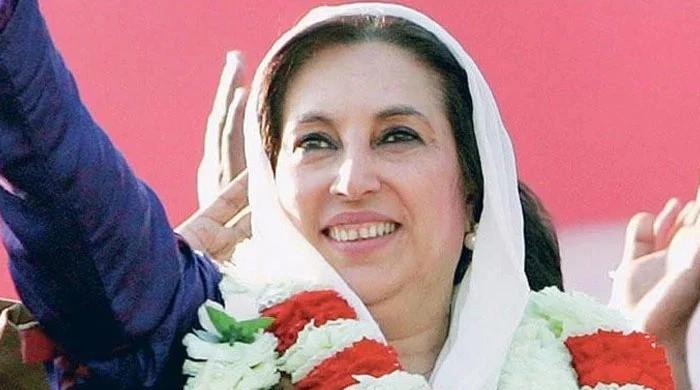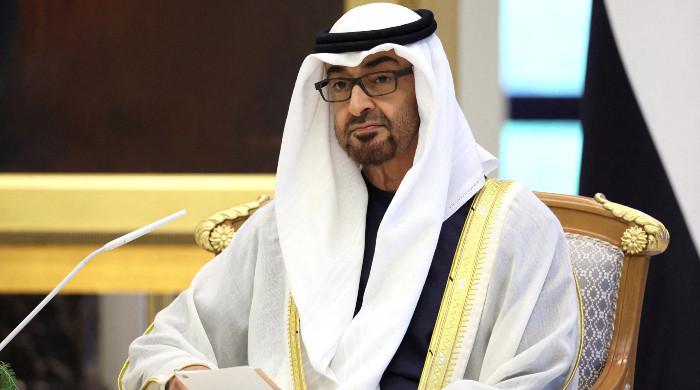Recognising Taliban as rulers of Afghanistan — II
Moscow may not be first to recognise the Taliban government, but it has at least paved way for many others to establish relations with Kabul
November 25, 2024
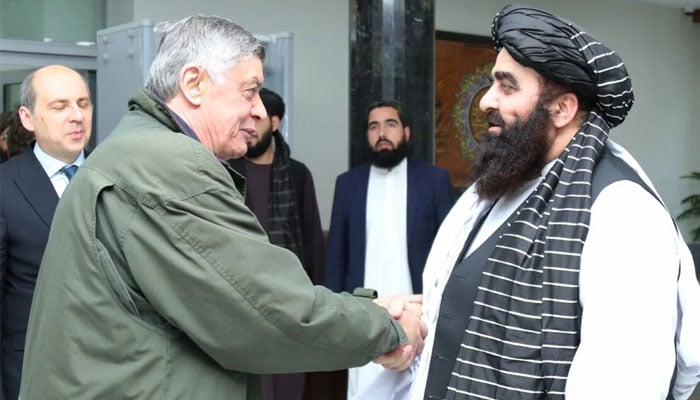
Prior to Chinese Ambassador Yue Xiaoyong, Russian President’s Special Representative on Afghanistan Zamir Kabulov paid a daylong visit to Islamabad. He had also held similar meetings. As usual both sides remained tight lipped about their discussion.
However, according to the ministry of foreign affairs, the two sides exchanged views on relations with Afghanistan and called for enhanced coordination among regional countries for a peaceful and prosperous Afghanistan and agreed to remain engaged towards this end.
These two important mid-November visits mark a significant step toward the role of neighbouring countries in promoting regional peace and stability — coming at a time when Pakistan faces a renewed wave of terrorism.
“During these meetings, the two sides discussed the situation in Afghanistan, the concerns about terrorism that Pakistan continues to face from hideouts and sanctuaries inside Afghanistan; and the importance of cooperation between neighbouring countries of Afghanistan for peace, stability and prosperity in Afghanistan,” explained foreign office spokesperson in her briefing.
Mumtaz Zahra Baloch said, “Pakistan faces the terror groups which have sanctuaries and hideouts in Afghanistan. Pakistan is concerned about the activities of these terror groups. We are also concerned about continued freedom of operation of terror groups that have found hideouts in Afghanistan.”
Security concerns
She didn’t elaborate if any evidence “about the support that terror groups (in Afghanistan) receive from hostile powers” was shared with the visiting dignitaries. However, Baloch gave a clear indication that Pakistan didn’t believe Afghan Taliban regime is abiding by Doha Peace Deal.
In her own words, “We hope that the Afghan authorities will consider this to be a serious threat, not just to the region, but also their own security, and fulfill their obligations under various international agreements, including the Doha Agreement.”
That agreement requires first and foremost, “guarantees to prevent the use of Afghan soil by any international terrorist groups or individuals against the security of the United States and its allies.”
The TTP connection
Yet, Taliban victory in Afghanistan only emboldened their ally Tehrik-e-Taliban Pakistan (TTP) to break ceasefire agreement with Pakistan in 2022. Since then, they are carrying out relentless attacks against Pakistani forces and civilians alike.
Pakistan’s former Special Representative for Afghanistan Asif Durrani has warned that if this militancy remains unchecked, the world can witness another 9/11.
In an interview, Durrani said, “We are witnessing daily operations by TTP and Daesh-Khorasan’s activities are well known. They have carried out attacks in Iran, Russia, Uzbekistan, Tajikistan and Pakistan.”
The level of distrust between the two countries is only growing as Afghanistan rejects Pakistan’s narrative as “both provocative and misaligned with the ground realities.”
“The Afghan government has successfully neutralised the Daesh-KP, insurgent group, within Afghanistan. However, addressing Daesh-KP hideouts along the theoretical Durand Line could lead to the complete elimination of this threat. It’s worth noting that the TTP issue is an internal matter of Pakistan, requiring a domestic solution,” remarked Afghanistan foreign office deputy spokesperson.
Taliban claims that the majority of the attacks carried out in the name of Daesh in Afghanistan were by foreign nationals who had entered the country form outside.
Without naming the countries, Kabul claims, "We take this opportunity to call on all countries in the region to cooperate in preventing the recruitment of their citizens by Daesh and then send them to Afghanistan and other countries to carry out subversive operations."
While the Taliban may deny Pakistan’s accusations, similar reservations have also been expressed by other countries. In February 2024, a report presented to the United Nations Security Council indicated that the Taliban have not cut ties with foreign terrorists, including Al Qaeda.
The same report claimed that terrorists have created eight new training camps and bases for storing weapons on Afghan territory, including in the provinces of Ghazni, Laghman, Parwan, Uruzgan, and Panjshir.
The report highlighted that an Al Qaeda camp in Kunar was "conducting suicide bomber training" to assist TTP operations against Pakistan.
"Besides supplying weapons and equipment, Taliban rank and file, Al Qaeda core, and AQIS fighters assisted TTP forces in cross-border attacks… Some Taliban members have also joined TTP, perceiving a religious obligation to provide support," the report noted.
The report gains credibility as in August 2022, Al Qaeda leader Ayman al-Zawahiri was killed in a US drone strike in Afghanistan.
Russia's reservations
Recognising the Taliban government by Russia seems even more distant. Moscow is alarmed by a number of factors, including the presence of non-Afghan groups in Afghanistan.
It is paying close attention to the activities of Daesh-KP, which has reportedly targeted the Taliban, foreign citizens, including diplomats, and has conducted overseas operations.
A deadly attack on the Crocus City Hall concert venue on the outskirts of Moscow is one such example. The attack on March 22 claimed 144 lives and left 155 people injured.
According to Russian media, within hours, four perpetrators of the terrorist incident — Delerdzhon Mirzoyev, Saidakram Rachabalizoda, Shamsidin Fariduni, and Mukhammadsobir Faizov — were arrested in Bryansk, a region of Russia that borders Ukraine.
Their seven accomplices —brothers Amichon and Dilovar Islomovs, their father Isroil Islomov, Alisher Kasimov, Lutfullo Nazrimada, Yakubdzhoni Yusufzoda, and Mukhammad Sharipzoda — were also held.
It is claimed that Ashurov, captured on April 16, helped the Islomov brothers obtain fake documents. Five other accused in the same incident were detained in Dagestan. Four of them were members of ISKP.
Director of Russia’s Federal Security Service (FSB), Alexander Bortnikov, said, "We know for certain that the recruiters of the perpetrators of the terrorist attack were members of IS-K and were specially targeting the Tajik diaspora in Russia through the internet from Afghanistan."
Hence, it is not only ISKP but also extremist ideologies that perplex Russia about how Kabul wants to evolve its society.
For the Kremlin, it is strange to see Kabul banning school education for girls, imposing dress codes on students, converting educational centers into madrassas and "jihadist centers," and prohibiting women from employment.
The lack of a truly inclusive government is another irritant.
"The Taliban government includes Uzbeks, Tajiks, Pashtuns, and Hazaras, but they are all politically Taliban. We are talking about ensuring not only ethno-confessional inclusivity, but also political inclusivity," Russian Foreign Minister Sergei Lavrov has outlined as priorities.
At the top of it, before any formal recognition, Moscow must delist the Taliban movement from the organisations it has proscribed as terrorists.
As Moscow too has limited options but to stay engaged with the Taliban, it is highly likely that Russia will change course in the coming months.
Central Asian countries
Moscow may not be the first to recognise the Taliban government, but it has at least paved the way for many others to establish relations with Kabul.
Addressing the sixth Moscow Format Consultation on Afghanistan, Taliban foreign minister Mawlawi Amir Khan Muttaqi admitted, "The Russian government initiated the Moscow Format at a time when the situation in Afghanistan was uncertain and concerning.
"The Moscow Format has undoubtedly played an effective role by providing the Islamic Emirate of Afghanistan (IEA) with the opportunity to talk and hold discussions with influential countries in the region and beyond, even prior to Afghanistan’s independence."
The removal of the Taliban movement from the list of proscribed groups by two former Soviet states reflects how regional countries are encouraged to embrace the Taliban, who were long considered a pariah.
Kyrgyzstan, in less than a year, has followed in the footsteps of Kazakhstan in accepting the Taliban as a non-terrorist organisation.
For the globally isolated Taliban, it’s another feather in the cap.
"Aligning with the actions of other countries, the step taken by Kyrgyzstan signifies a growing political recognition of the IEA on both regional and international levels and removes a barrier to strengthening bilateral relations between the IEA and other countries," remarked the Taliban on the development.
High-profile meetings are also taking place between these countries to explore ways to promote economic cooperation, bilateral trade, and transit.
In a meeting with Afghan foreign minister Muttaqi in Kabul, the Prime Minister of Uzbekistan, Abdullah Nigmatovich Aripov, “expressed his intention to upgrade diplomatic relations with Afghanistan, indicating that Uzbekistan may soon accept an ambassador of the IEA.”
After all, both countries stand to benefit greatly from the Trans-Afghan Railway project, as it can serve as a "critical corridor connecting Central and South Asia."
Turkmenistan is also aggressively developing ties with Afghanistan. Both countries have inaugurated major initiatives, including the Turkmenistan–Afghanistan–Pakistan–India Pipeline (TAPI) gas pipeline, Turkmenistan-Afghanistan-Pakistan (TAP) power transmission, Noori Fiber Optic Network, and a railway line.
For Afghanistan, it is a successful extension of the TAPI pipeline through its territory. It also has the potential to benefit Pakistan and India.
To be continued...
The author is Controller News at Geo News. He posts on X at @NasimHaider2 and can be reached at [email protected]




